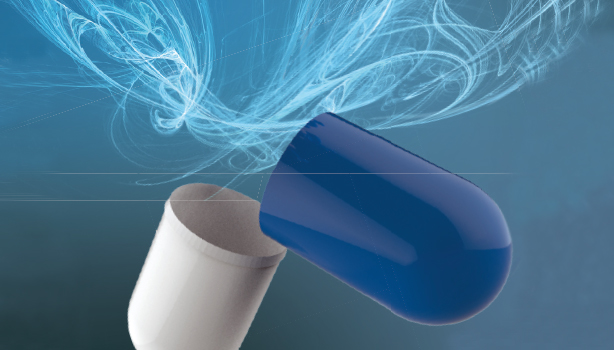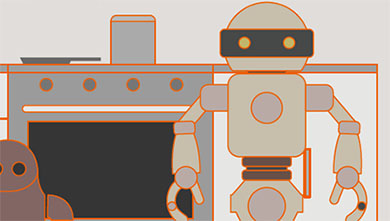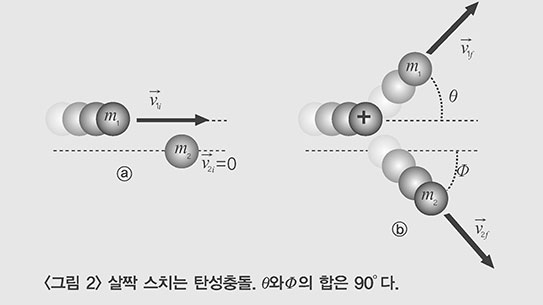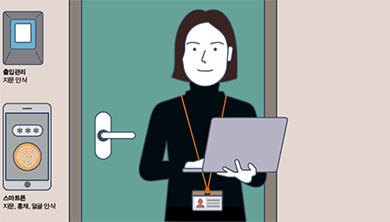가상 현실(virtual reality)에 관한 많은 학회가 올 봄에 열리기로 되어 있다. 당연히 수많은 보고서가 쏟아져 나올 것이다. 새로운 정보로 넘쳐나기 전에 필자는 지금 '가상현실'에서 무엇이 진행되고 있는지 살펴보고자 한다.
가상현실(VR)이란 말은 10년전 캘리포니아 VPL연구소의 제이런 라니어가 고안한 것이다. VR은 흔히 '가능케 하는' 기술로 정의된다. 하지만 모든 기술이 사람으로 하여금 무엇인가를 가능케하기 때문에 VR의 정의는 보다 면밀히 음미될 필요가 있다.
VR기술은 사람들에게 컴퓨터를 새롭게 사용할 수 있게 한다. VR에서 사람은 하나의 원격체가 된다. 수동적인 사용자를 능동적인 참가자로 바꾸어주는 특별한 장비를 사용하면 VR 컴퓨터의 스크린에 나타난 이미지는 '조작된 실체(simulated reality)'가 된다.
VR의 사용자는 렌즈 대신 비디오 모니터가 달린 시각기에 때로는 이어폰이 딸리기도 하는 헤드세트를 쓰게 된다. 이 시각기를 통해서 사용자는 3차원의 가상 세계만을 보게 된다. 감지기가 달린 장갑이나 옷을 입음으로써 사용자의 동작이 컴퓨터로 전달된다. 피드백 작용에 의해 사용자가 컴퓨터에게 요구하는 바와 컴퓨터가 하고 있는 일에 사용자가 응답할 수 있는 방법도 전달된다.
VR은 초창기에는 비행사의 훈련도구로 주로 쓰였다. 비행사가 조종석에 앉아서 비행기를 조종하는 것과 같은 경험을 가지게 한것이다. 최근들어 VR이 아주 중요하게 사용되고 있는 것은 도구를 원격조종하는 일이 가능해지면서 부터다. 럿거스 대학의 기술자인 버디는 최근 감지장갑을 더 개선하였다. 그는 장갑의 손가락 끝부분에 눌러지는 강판을 붙임으로써 사용자가 물체를 조작할 때 그 느낌을 더 잘 받도록 하였다.
지구상 어디에서든지 유독폐기물과 같이 위험한 물질을 안전하게 다를 수 있는 유일한 방법은 도구를 원격조종하는 일이다. 이 원격조종은 우주탐사에서도 이미 선을 보였는데 지구에 있는 기술자가 로봇의 팔을 이용하여 화성의 토양을 퍼올리는 경우가 그것이다.
VR기술을 이용하면 우리는 태양계에 관하여 보다 많은 것을 알아낼 수 있으며, 나아가 유인기지를 달과 화성 또는 우주공간에도 건설할 수 있다.
원격조종을 통한 진료와 수술도 시행중인데, 수술도구가 부착된 내시경을 이용한 섬세한 수술은 이미 시술되고 있다. 그 결과 의사는 자신이 하는 일을 보기 위하여 환부를 크게 절개하지 않아도 된다. 의사는 컴퓨터를 이용해 사용중인 수술도구와 환자의 해부체를 3차원 이미지로 볼 수 있다. 영국 텔레콤 소속 레이저 물리학자 데이빗 히틀리에 의하면 VR기술을 이용한 보다 정교한 수술이 임상실습 중이라고 한다. 인체내에서 작은 전자장(場)을 생산하는 많은 센서들이 사용중인 수술도구의 정확한 위치를 컴퓨터에게 알려준다. 여기에 감지장갑과 로봇팔을 이용하면 수술실 밖에서도 수술이 가능할 것이다. VR원격조종장치를 이용하면 세계 여기저기에 흩어져 있는 전문의들이 진료와 수술이 필요한 어떤 장소의 누구에게나 도움을 줄수 있게 될 것이다. 또한 우주비행사나 달기지에 있는 요원들에게도 이런 종류의 도움을 줄 수 있을 것이다.
가상현실은 원격조종의 여부와 관계없이, 또 비행사뿐 아니라 교육계에서도 광범위하게 응용되고 있다. 의과대학생은 실제 수술을 보조하기 전에 먼저 모의 수술부터 해본다. 장래의 과학자가 될 학생들은 현실적으로는 가능치 않은 실습을 모의 실험실에서 해보고, 그 안에서 물리학과 화학의 기초지식도 배운다.
휴스턴 다운타운대학에 있는 물리 학자 로프틴은 학생들에게 감지장갑이나 헤드세트를 착용시켜서 중력이나 마찰이 없는 세계에서는 어떤 일이 벌어질 것인지를 연구하게 한다. 어떤 교육자는 VR을 이용하여 사람들이 언어를 배울 때 도움을 주며, 나아가 농아들이 기호언어를 배우는 일도 도와준다.
VR은 일반적인 연구에도 도움이 된다. 빌딩을 새로 지을 기술자는 구덩이를 파기 전에 미리 가상현실 속에 만들어진 그 건물 주위를 걸어다니거나 들어가보는 경험을 할 수 있다. 노스캐롤라이너 대학의 전산학과에 의하면 심지어 과학자들이 VR을 통해서 화합물 안으로 걸어다니면서 한개의 원자나 분자를 첨가하여 그 화합물이 단백질들과 결합하는 방법을 변화시킬 수도 있다고 한다. 이 작업을 이용하면 의약품과 같은 새로운 화합물을 쉽게 만들수 있다.
비디오 게임에 대해서는 오랜 논쟁이 있어 왔다. 감수성이 예민한 사람에게 비디오 게임은 간질을 유발시킨다는 주장이 있다. 그런데 시각과 청각, 촉각이 완벽히 제공된 가상의 세계에서 우리를 머물게 하는 진짜 VR 오락기가 있다면 그것이 인간에게 미치는 영향은 무엇일까? 과학자인 안드레 바카드의 지적에 의하면 이들 '대리 인생'의 재미에 몰입된 사람은 잘되면 사회적 감각이 없는 사람, 최악의 경우에는 반사회적인 인간이 된다고 한다.
이야기꾼의 이야기에 넋이 나간 구석기시대 사람들, 또는 TV나 영화를 보거나 책을 읽는 현대인에게서 보여지듯이 사람은 한 순간만이라도 자신의 삶에서 벗어나서 다른 삶에 빠져 보려고 한다. 작가들과 같이 운이 좋은 일부 사람들은 아무 장비도 없이 VR을 체험한다. 즉 그들은 자신이 상상하고 있는 이야기 속에서 실제와 같은 풍경과 소리와 감정을 경험하는 것이다.
그 비결은 바로 우리의 상상속에 있는 것과 없는 것을 추적하는 재주에 있다.

Virtual Reality
Several virtual reality conferences are scheduled to take place this spring, no doubt to be followed by a deluge of reports, so before being inundated with new information I'll explore what's going on in VR now.
Virtual reality is a name invented about 10 years ago by jaron Lanier, of VPL Research, Inc., in California. VR is frequently defined as an 'enabling, technology. Since all technology enables humans to do something or other, the definition needs closer scrutiny.
The technology of VR enables people to use computers in a new way. In VR, the human user becomes a 'telepresence.' Images on a VR computer screen are 'simulated reality' experienced by people using special equipment that turns passive users into participants.
VR users wear a headset that sometimes has earphones but always has eyepieces with liquid crystal video monitors in place of lenses. With the eyepieces, the user sees only the 3-D world of virtual reality.
By wearing sensor-filled gloves or even body suits, the user's movements are transmitted to the computer. With feedback, the computer is constantly informed of what the user wants it to do and of how the user is reacting to what the computer does.
VR first became important as a method of training pilots, helping them experience what it's like to sit in a cockpit and fly a plane. Now its most important use stems from its ability to provide remote control of tools. Grigore Burdea, an engineer at Rutgers University, has recently improved on the sensor glove. Compressible metal tips on the glove's fingers make it easier for the user to feel and manipulate objects.
Here on Earth, remote control of tools is the only safe way to handle dangerous material like toxic waste. In space exploration, remote control has already been demonstrated, as technicians on Earth used robot hands to scoop up Martian soil samples. With VR techniques well not only be able to learn more about the solar system, but we'll find it easier to build habitable stations on the moon and Mars, or in space itself.
Remote control madicine and surgery is on the way. Delicate operations can already be performed using fiber-optic scopes with attached tools, so that the surgeon does not have to make large openings in order to see what he's doing. With computers, surgeons can watch 3-D computer images of the patient's anatomy and the surgical tool being used.
Hospital testing of more elaborate VR techniques is now going on, according to David Heatley, laser physicist with British Telcom Ltd. From inside the body, multiple sensors generating small magnetic fields tell the computer the exact location of the surgical tool being used. Adding sensor gloves and robot arms, surgeons will be able to operate from outside the operating room. VR remote control technique will make it possible for specialists scattered around the world to provide medical and surgical help to anyone anywhere. It will also make it possible for astronauts or lunar colonists to get this kind of help.
Virtual Reality - with or without remote control — has wide applications in education, not just of pilots. Medical students can perform simulated surgery long before they assist at real operations. Would-be scientists can conduct experiments in simulated laboratories that world not be feasible in a real lab and will teach them fundamentals about physics and chemistry.
At the University of Houston-Downtown, physicist R. Bowen Loftin is already equipping students with sensor gloves and headsets that enable them to interact with laboratory experiments, and to study what would happen if various aspects of the real world, like friction or gravity, did not exist.
Other educators are using VR to help people learn languages, even to help deaf children learn sign language.
Research improves with VR. Engineers planning a new building can construct it in virtual reality, walk around and through it — before a hole is dug in the ground! Other scientists can, according to the University of North Carolina's Department of Computer Science, 'walk around' a chemical compound, add an atom or molecule to change the way it 'docks' on various proteins. This makes it easier to experiment with creating new compounds, like medicines.
Video games have long generated controversy. It's claimed that in susceptible people, they can induce epileptic attcks. But what about the effect of genuine VR entertainment that lets you feel you're living and playing right in the simulated world, complete with sight, sound and tactile sensation? Scientist Andre Bacard points out that people immersed in Vicarious lives' can become 'socially apathetic at best and sociopathic at worst.'
But human beings seem drawn to living outside their own lives, at least temporarily - like paleolithic people mesmerized by a story-teller, or modern people reading books, going to the movies, watching TV. And some lucky people — many of them writers — get VR for nothing, for they can experience as real the sights, sounds and emotions in a story they're imagining.
The trick is to keep track of what's in the imagination and what isn't











